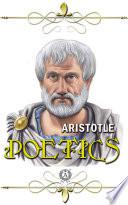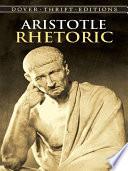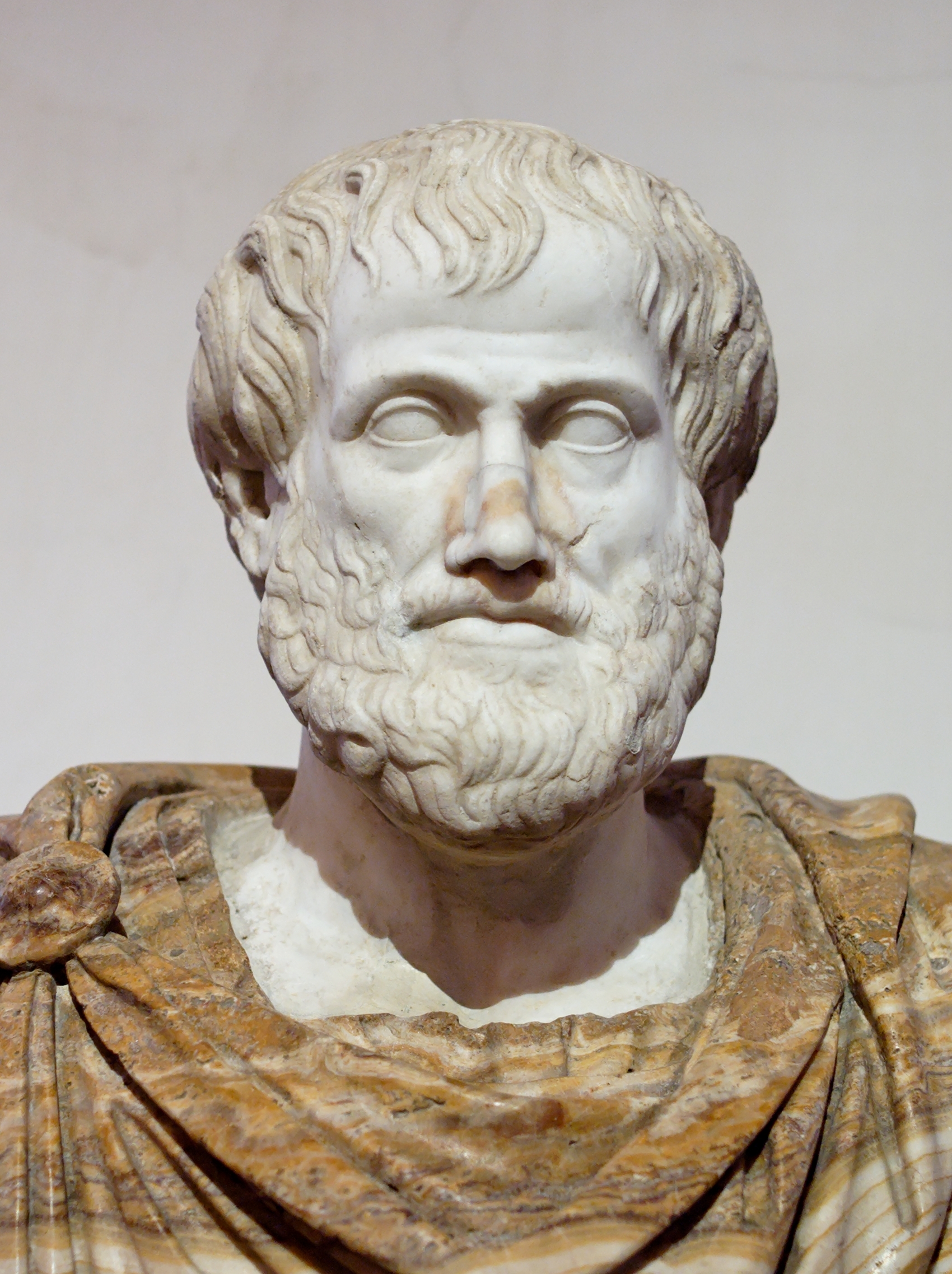Works
Metaphysics
Aristotle
Poetics
Aristotle
Rhetoric
AristotleGeneration of Animals
AristotleParts of Animals
AristotleOn the Soul
AristotlePosterior Analytics
AristotleCategories
AristotleOn the Universe
AristotleEudemian Ethics
AristotleEconomics
AristotleFamous Aristotle Quotes
“It is the mark of an educated mind to be able to entertain a thought without accepting it.”
Attributed to Aristotle in Lowell L. Bennion, Religion and the Pursuit of Truth http://books.google.gr/books?id=2HPUAAAAMAAJ&q=, Deseret Book Company, 1959, p. 52, and in American Opinion, Volume 24 http://books.google.gr/books?id=irofAQAAMAAJ&q=, Robert Welch, Inc., 1981, p. 23. Possibly a discombobulation http://publicnoises.blogspot.fi/2009/02/aristotle-and-accuracy.html of the Nicomachean Ethics Book I, 1094b.24 quote above.
Disputed
Source: Metaphysics
“The roots of education … are bitter, but the fruit is sweet.”
The Lives and Opinions of Eminent Philosophers
Aristotle Quotes about nature
Book I, 1369a.5
Rhetoric
Variant: All human actions have one or more of these seven causes: chance, nature, compulsions, habit, reason, passion and desire
Source: Selected Works
Aristotle: Trending quotes
Aristotle Quotes
“What is a friend? A single soul dwelling in two bodies.”
Variant: A friend is one soul abiding in two bodies.
Variant: Love is composed of a single soul inhabiting two bodies.
Source: The Lives and Opinions of Eminent Philosophers, p. 188; also reported in various sources as:
Friendship is a single soul dwelling in two bodies.
A true friend is one soul in two bodies.
Love is composed of a single soul inhabiting two bodies.
What is a friend? A single soul dwelling in two bodies.

“Those who know, do. Those that understand, teach.”
This and many similar quotes with the same general meaning are misattributed to Aristotle as a result of Twitter attribution decay. The original source of the quote remains anonymous. The oldest reference resides in the works of George Bernard Shaw, Man and Superman (1903): "Maxims for Revolutionists", where he claims that “He who can, does. He who cannot, teaches.”. However, the related quote, "Those who can, do. Those who understand, teach" likely originates from Lee Shulman in his explanation of Aristotlean views on professional mastery: Source: Shulman, L. S. (1986). Those who understand: Knowledge growth in teaching. Educational Researcher, 15(2), 4 - 14. Stable URL: http://www.jstor.org/stable/1175860
Misattributed
Variant: Those who can, do, those who cannot, teach.
“Philosophy can make people sick.”
Source: Nicomachean Ethics

Book II, 1109a.27.
Variant translation: Anybody can become angry, that is easy; but to be angry with the right person, and to the right degree, and at the right time, for the right purpose, and in the right way, that is not within everybody's power and is not easy.
As quoted in The Child: At Home and School (1944) by Edith M. Leonard, Lillian E. Miles, and Catherine S. Van der Kar, p. 203
Nicomachean Ethics
“It is not always the same thing to be a good man and a good citizen.”
Source: Selected Writings From The Nicomachean Ethics And Politics
“Misfortune shows those who are not really friends.”
Eudemian Ethics, Book VII, 1238a.20
Eudemian Ethics
“Happiness depends upon ourselves”
An interpretative gloss of Aristotle's position in Nicomachean Ethics book 1 section 9, tacitly inserted by J. A. K. Thomson in his English translation The Ethics of Aristotle (1955). The original Greek at Book I 1099b.29 http://perseus.uchicago.edu/perseus-cgi/citequery3.pl?dbname=GreekFeb2011&getid=0&query=Arist.%20Eth.%20Nic.%201099b.25, reads ὁμολογούμενα δὲ ταῦτ’ ἂν εἴη καὶ τοῖς ἐν ἀρχῇ, which W. D. Ross translates fairly literally as [a]nd this will be found to agree with what we said at the outset. Thomson's much freer translation renders the same passage thus: [t]he conclusion that happiness depends upon ourselves is in harmony with what I said in the first of these lectures; the words "that happiness depends upon ourselves" were added by Thomson to clarify what "the conclusion" is, but they do not appear in the original Greek of Aristotle. Rackham's earlier English translation added a similar gloss, but averted confusion by confining it to a footnote.
Disputed
Variant: Happiness depends upon ourselves
Source: See http://www.mikrosapoplous.gr/aristotle/nicom1b.htm#I9 for the original Greek and Ross's translation; Thomson's translation can be viewed on Google Books https://books.google.com/books?id=9SFrNWmO654C&dq=%22happiness+depends+upon+ourselves%22+aristotle&focus=searchwithinvolume&q=%22happiness+depends+upon+ourselves%22+.
Source: Rackham's translation of this passage is available here http://www.perseus.tufts.edu/hopper/text?doc=Perseus%3Atext%3A1999.01.0054%3Abook%3D1%3Achapter%3D9%3Asection%3D8
“Poverty is the parent of revolution and crime.”
Book II, Section VI ( translation http://archive.org/stream/aristotlespolit00aris#page/69/mode/1up by Benjamin Jowett)
Politics
Context: One would have thought that it was even more necessary to limit population than property; and that the limit should be fixed by calculating the chances of mortality in the children, and of sterility in married persons. The neglect of this subject, which in existing states is so common, is a never-failing cause of poverty among the citizens; and poverty is the parent of revolution and crime.
Source: Will Durant, The Story of Philosophy: The Lives and Opinions of the World's Greatest PHilosophers (1926), reprinted in Simon & Schuster/Pocket Books, 1991, ISBN 0-671-73916-6], Ch. II: Aristotle and Greek Science; part VI: Psychology and the Nature of Art: "Artistic creation, says Aristotle, springs from the formative impulse and the craving for emotional expression. Essentially the form of art is an imitation of reality; it holds the mirror up to nature. There is in man a pleasure in imitation, apparently missing in lower animals. Yet the aim of art is to represent not the outward appearance of things, but their inward significance; for this, and not the external mannerism and detail, is their reality.
Book VIII 1337b.5 http://books.google.com/books?id=ZrDWAAAAMAAJ&pg=PA245&dq=%22absorb+and+degrade+the+mind%22&hl=en&sa=X&ei=c6NaUbatEYWp4AOWp4CoBA&ved=0CHYQ6AEwDA#v=onepage&q=%22absorb%20and%20degrade%20the%20mind%22&f=false, 1885 edition
Politics
Context: There can be no doubt that children should be taught those useful things which are really necessary, but not all things, for occupations are divided into liberal and illiberal; and to young children should be imparted only such kinds of knowledge as will be useful to them without vulgarizing them. And any occupation, art, or science which makes the body, or soul, or mind of the freeman less fit for the practice or exercise of virtue is vulgar; wherefore we call those arts vulgar which tend to deform the body, and likewise all paid employments, for they absorb and degrade the mind. There are also some liberal arts quite proper for a freeman to acquire, but only in a certain degree, and if he attend to them too closely, in order to attain perfection in them, the same evil effects will follow.
“Money was intended to be used in exchange, but not to increase at interest.”
Book I, 1258b.4
Politics
Context: Money was intended to be used in exchange, but not to increase at interest. And this term interest, which means the birth of money from money, is applied to the breeding of money because the offspring resembles the parent. Wherefore of all modes of getting wealth this is the most unnatural.
Book I, 1098a-b; §7 as translated by W. D. Ross
Nicomachean Ethics
Context: Let this serve as an outline of the good; for we must presumably first sketch it roughly, and then later fill in the details. But it would seem that any one is capable of carrying on and articulating what has once been well outlined, and that time is a good discoverer or partner in such a work; to which facts the advances of the arts are due; for any one can add what is lacking. And we must also remember what has been said before, and not look for precision in all things alike, but in each class of things such precision as accords with the subject-matter, and so much as is appropriate to the inquiry. For a carpenter and a geometer investigate the right angle in different ways; the former does so in so far as the right angle is useful for his work, while the latter inquires what it is or what sort of thing it is; for he is a spectator of the truth. We must act in the same way, then, in all other matters as well, that our main task may not be subordinated to minor questions. Nor must we demand the cause in all matters alike; it is enough in some cases that the fact be well established, as in the case of the first principles; the fact is the primary thing or first principle. Now of first principles we see some by induction, some by perception, some by a certain habituation, and others too in other ways. But each set of principles we must try to investigate in the natural way, and we must take pains to state them definitely, since they have a great influence on what follows. For the beginning is thought to be more than half of the whole, and many of the questions we ask are cleared up by it.
The Lives and Opinions of Eminent Philosophers
“For the things we have to learn before we can do, we learn by doing.”
Book II, 1103a.33: Cited in: Oxford Dictionary of Scientific Quotations (2005), 21:9
Nicomachean Ethics
Source: The Nicomachean Ethics
Source: Politics
“Without friends no one would choose to live, though he had all other goods.”
Book VIII, 1155a.5
Nicomachean Ethics
Source: The Nicomachean Ethics
